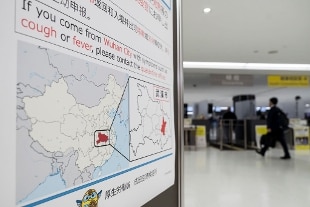Share
January 26, 2020 "Travelers to Toronto Pearson International Airport will soon have to answer a question about the new coronavirus that caused a pneumonia outbreak in China." This is the title with which Cbc Radio-Canada published online, on January 20, the news of the first preventive measures regarding the spread of the Chinese virus in the country.The news included, without undue emphasis, an interview with Dr. Kamran Khan, a doctor specializing in infectious diseases , as well as founder and CEO of the BlueDot company, which deals with digital health.
Travelers at Pearson to be asked about coronavirus amid pneumonia outbreak in China https://t.co/PLgnzjFc94 pic.twitter.com/lHsys9zuhm
- CBC Toronto (@CBCToronto) January 21, 2020Artificial intelligence beats the virus quickly
Khan told the Toronto newspaper that health officials still did not know how far coronavirus would spread and that vaccines were not available. But he also said that BlueDot, the startup he founded six years earlier, was working to find better ways to detect and respond to threats from infectious diseases, in this case by following the spread of coronavirus in China and other countries, with a platform based on artificial intelligence capable of processing billions of data.
The Canadian company had thus been able to launch the first notices on the epidemic on December 31 last, well before then the notifications of the WHO , the World Health Organization and the CoC, US Centers for Disease Control and Prevention.
The news has not gone unnoticed by those involved in technology. According to Wired, BlueDot has developed natural language processing and machine learning technologies to aggregate news, airline data and reports of epidemic diseases in animals, to trace an evolutionary picture faster than the disease can travel. And so, he correctly predicted where the Wuhan virus would land: Bangkok, Seoul, Taipei, Tokyo.

